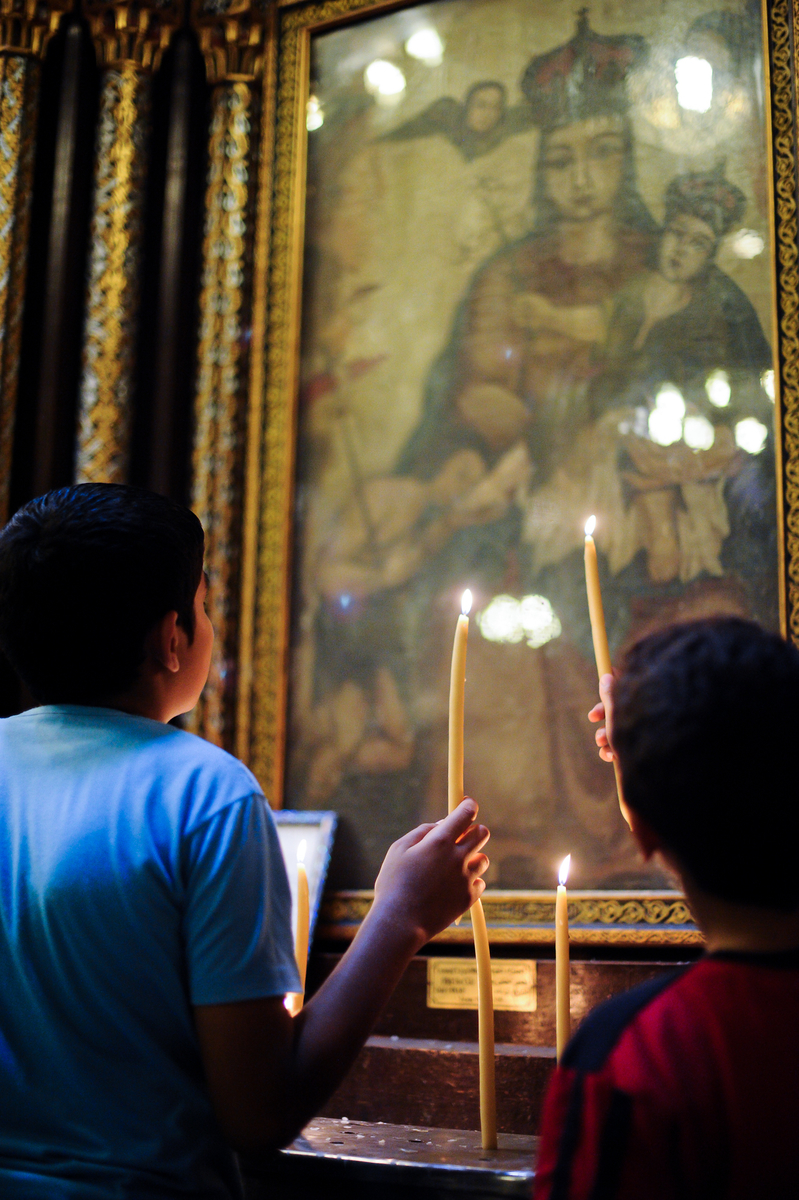Police violence toward protestors underreported
CAIRO: News of the Israeli-Lebanese war still dominates the headlines, with national and independent newspapers giving it top priority as anti-war protests rage across the country.
Among the war updates is the news of 6,000 Egyptian evacuees who are currently pouring into Syria, according to the daily Al-Masry Al-Youm. The Egyptian ambassador to Lebanon told the press that more than 25,000 Egyptians are still residing in Lebanon; citizens who live in different areas throughout the country. The Egyptian embassy is trying to facilitate their transfer to Syria, said the ambassador.
“Egypt is the only country that offered its citizens all amenities during their transfer and their accommodation in Syria for free, Hazem Khairat, Egypt’s ambassador to Syria, was quoted by Al-Masry Al-Youm as saying. “[The country] is accommodating all their expenses, ticket fare and all services until their leave from Damascus.
Reportedly, around 5,000 of the evacuees are expected to return to Egypt on board EgyptAir airlines and military planes.
The embassy in Lebanon has also cancelled the celebration of Egypt’s 54th anniversary of its National Day commemorating the revolution of the Free Officers on July 23, 1952, when the country was proclaimed a republic. The celebration was reportedly cancelled in consideration of the raging war on Lebanon, with Israeli violence escalating day by day in Beirut, southern Lebanon and on the borders.
Even though the ceremony was halted in Lebanon, it went on as planned in Israel “in an atmosphere of intimacy and friendliness, according to the Muslim Brotherhood’s official Web site and IslamOnline news Web site. Reportedly, Israeli public figures and officials attended the celebration at Egypt’s consulate in Tel Aviv in an event “that marked peaceful relations between Egypt and Israel.
Egypt is one of the few Arab countries that enjoy strong ambassadorial ties and business relations with the Jewish state.
Meanwhile, anti-Israel protests rage on, with the press syndicate organizing events in solidarity with Lebanon. “A night in love of Lebanon, an evening of poetry and prose dedicated to Lebanon, will feature accounts of Lebanese nationals and evacuees who have left Lebanon in an attempt to convey the depth of the humanitarian crisis in the war-torn country and to show “the crimes of the Zionist war pounding on Lebanon.
This form of protest comes in a series of demonstrations and protests supporting the Lebanese cause throughout Egypt. Last Thursday, Youth for Change, an offshoot group of the Kefaya movement, held a protest in Shubra.
Kefaya continued to rally in support of Lebanon in a secular protest in Al-Areesh, while Muslim Brotherhood members and dozens of its supporters flocked to a Brotherhood-organized protest in Cairo on Friday to condemn the continuous Israeli offensive against the Arab state.
The protest at the Al-Azhar mosque, following the Muslim Friday prayers, attracted Lebanon sympathizers from the opposition and anti-war activists, and Muslim Brotherhood members who have recently taken a strong position in hailing Lebanese Shiite resistance group Hezbollah and condemning what they called “the passivity . and the weakness of Arab states. Muslims who came to pray also joined the protesters.
Security forces nevertheless constrained the strength of the “unauthorized protest where, according to Al-Jazeera, armed riot police dispersed the gathering and beat the demonstrators with batons and truncheons inside the grand mosque; an incident that was not highlighted in local media and was timidly criticized by independent and opposition newspapers.
Although the protests were scheduled to be held on a national scale across 26 governorates, many of the protests were cancelled.
Kefaya is scheduled to hold another demonstration in the Tahrir area in central Cairo next Wednesday. The upcoming protest was called upon by Kefaya, Al-Karama political group and the Socialist Revolutionist Party in their joint conference Thursday, and initiated to support the resistance in Palestine and Lebanon and is said to be authorized by the state.
Kefaya, a secular movement and a fierce critic of the government, has been calling on the Egyptian government to cut ties and peace deals with Israel, forcing the Israeli ambassador out of Egypt and freezing oil and natural gas exports.
Bound by a peace treaty, Egypt maintains normal economic relations that include commercial sales of petrol and gas by Egypt to Israel. Egypt launched the QIZ, an economic trade agreement that allows Egypt to export duty-free products to the United States as long as the products contain a given percentage of input from Israel.
We want to see all forms of sanctions against Israel, George Ishaq, Kefaya leader and co-founder, had told Agence-France Presse during an earlier protest. We don t want agreements with Israel; we don t want relations with Israel . The Camp David agreement has become nothing more than ink on paper.
Egypt also receives an annual $1.9 billion a year in aid from the United States, a strong ally of the Jewish state. Egypt’s diplomatic relations with the two countries makes it difficult, according to analysts, for the country to take a strong stance toward the Israeli-Lebanese war or to sever ties with Israel, ruling out almost completely any notion of military intervention.
Meanwhile, Israel continues to call for the evacuation of southern Lebanese cities, signaling more strikes against the country. Israel is reportedly preparing for a wide-scale incursion into southern Lebanon, carrying out air strikes across the borders and sending ground troops. The number of casualties in the war-stricken country is rising, with more than 350 (mostly civilians) dead.
In its world crisis report published Friday, the United Nations warned against the repercussions of the bloody conflict between Israel and Lebanon, as violence escalates. The UN secretary general said, “[What] is most urgently needed is an immediate cessation of hostilities, to prevent further loss of innocent life and the infliction of further suffering; to allow full humanitarian access to those in need.


